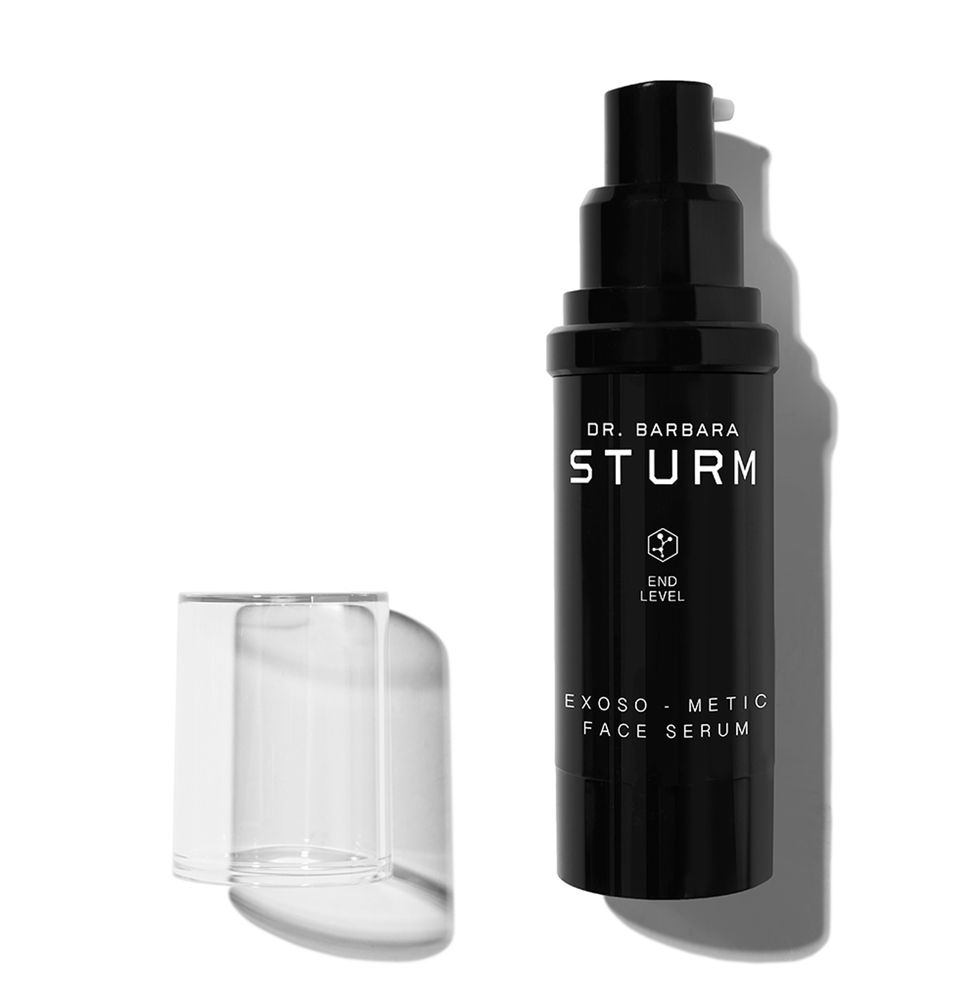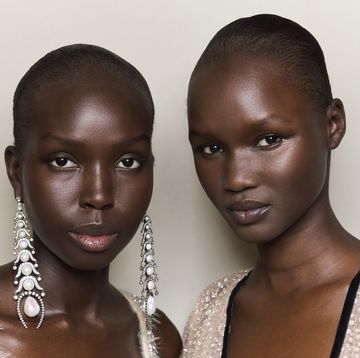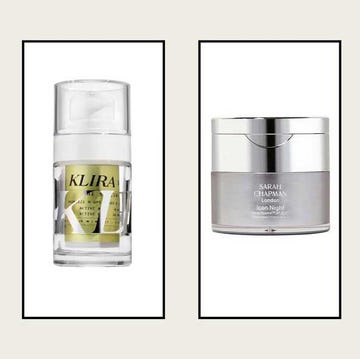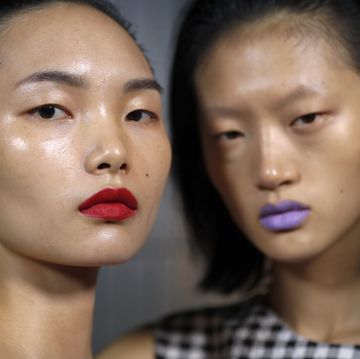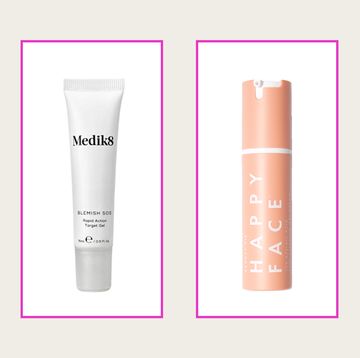Just when you'd mastered the art of skincare layering, got to grips with your skin barrier health and learnt your AHAs from your BHAs, a new buzzy term comes along promising your best skin yet... The topic in question? Exosomes.
Yes, exosomes have been shaking up the beauty industry of late, with 'exosome therapy' before-and-afters blowing up on TikTok and cutting-edge technology claiming to restore your dermis on a deeper, cellular level. Now it's reaching the mainstream with Google searches up 5,000% and the term taking over our serums and moisturisers.
While we'd usually caution against jumping on every new skincare trend (after all, those garnering the most attention might not always yield the best results for your dermis), according to a host of experts and growing research, exosomes are in fact the real deal where your complexion is concerned.
How so? Here to demystify the world of exosomes are some of the best derms and experts in the business: aesthetics expert Dr. Sophie Shotter, consultant dermatologist at GetHarley, Dr. Angela Tewari, and Medical Consultant, Skin Expert and Founder Adonia Medical Clinic, Dr. Ifeoma Ejikeme.
What exactly are exosomes?
As far as complicated ingredients go, exosomes sound more like the makings of a scientific experiment than a veritable skin saviour – but there's a tonne of skin and health benefits that make them well worth schooling up on. ‘Exosomes are intracellular vesicles that are used to cross-talk between cells, and carry various information via growth factors and signalling molecules,' explains Dr. Tewari. In other words, think of exosomes as messengers between cells in your body. 'They mediate cell-to-cell communication,' as Dr. Shotter puts it.
Put simply, these small messengers are naturally produced in the body and help various cells communicate which, in turn, can aid the body's repair process and improve all manner of maladies, from reducing inflammation and aiding health conditions like joint aches to supporting skin's collagen production and the all-important skin barrier. The problem is, they deplete with age – which is where skincare and treatments come in.
What are exosomes in skincare?
‘Exosomes are produced by cells and contain genetic information, proteins, and growth factors that can communicate with other cells and stimulate healing,’ shares Dr. Ejikeme. It's their healing properties that make them so beneficial for our skin as they can fast-track the natural repair and renewal process. 'By facilitating the transfer of important molecular information, they can help repair damaged cells, leading to skin regeneration, improved collagen production, and increased overall skin vitality,' she notes. Skin translation: adding exosomes to your skin regime can help repair skin and tackle fine lines, improve texture and strength, leading to an altogether glowier, healthier-looking complexion.
Indeed, exosomes provide a way of allowing ingredients such as growth factors and peptides to be efficiently absorbed into the cells due to their small size and molecular composition. Dr. Shotter explains that they can penetrate the skin’s deepest layers and send cell-stimulating messages. 'Once absorbed by the cells, they activate fibroblasts to produce up to 600% more collagen and 300% more elastin,' she adds.
It's these reasons why exosomes work wonders when it comes to boosting the efficacy of skincare ingredients and professional treatments alike. 'Combining any treatment designed to boost collagen, elastin and hyaluronic acid levels with exosomes will enhance the results as you are improving the signalling to cells to build these proteins,' says Dr. Shotter. It's why she describes their function in our skin regimes as 'enhanced healing'.
FIND OUT MORE ON ELLE COLLECTIVE
Skincare buffs will have noticed that exosomes are beginning to crop up in a number of new skincare formulations. Dr. Barbara Sturm's new exoso-metic range, for instance, aims to enhance the skin's own regeneration using lab-grown growth factors to help improve cell communication and mimicking the role of natural exosomes within the body.
Do exosomes really work?
If you're wondering if there's any science to back this all up, the data is starting to stack up in its favour but, as Dr. Tewari notes, it's still in its infancy. 'I think the use of exosomes to treat skin conditions such as acne, rosacea, eczema is still in the early stages,' she notes.
Though there is substantial evidence to suggest that exosomes in skincare and treatments can prove a salve for our skin, there's still a lot of misunderstanding surrounding the topic. The main issue with exosomes, says Dr. Sophie Shotter, is that the most current evidence has come from human exosomes (which, as she warns, should not be administered for professional treatments) – exosomes in skincare, on the other hand, are derived from plant stem cells.
That said, there is some compelling data around exosomes and more studies being carried out. The good news is that they're generally considered safe for most skin types,’ says Dr. Ejikeme. Though she adds that those with specific skin concerns or medical conditions should always consult a dermatologist or skincare professional before incorporating exosomes into their skincare routine. 'For all inflammatory skin diseases, it's important that you see a specialist and you go down the evidence-based pathway of medical treatment,' she urges.
What is exosome therapy?
'Exosome therapy' is another buzzword that's taking over the aesthetics industry; a cutting-edge treatment that aims to restore and rejuvenate skin. ‘Exosome therapy is a minimally invasive procedure that uses nano-size vesicles called exosomes to regenerate and repair skin, hair, and other tissues,’ explains Dr. Ejikeme.
There are different types of pro treatments surfacing depending on different skin conditions and desired results, but typically the treatment involves injecting exosomes into the target area or applying them topically. As Dr. Ejikeme warns, its crucial to consult with a qualified doctor before undergoing exosome therapy, especially if you have sensitive skin or existing skin conditions.
There are a handful of exosome therapies being offered on professional treatment menus now. At the esteemed Adonia Medical Clinic, Exosome Facial Rejuvenation - an anti-aging treatment that uses stem cells and delivers concentrated exosomes to your skin - helps improve skin texture and tone, tackle fine lines and hyperpigmentation. Meanwhile, at EF Medispa, the E50 Exosome Treatment is applied topically onto skin and used in combination with a microneedling device. Then there's the Exotech Exosome Therapy at Dr. David Jack's clinic in London, which harnesses regenerative tech to address fine lines and improve skin texture and clarity. And if the buzz in the beauty world is anything to go by, exosomes will be cropping up more and more...
ELLE Collective is a new community of fashion, beauty and culture lovers. For access to exclusive content, events, inspiring advice from our Editors and industry experts, as well the opportunity to meet designers, thought-leaders and stylists, become a member today HERE.


